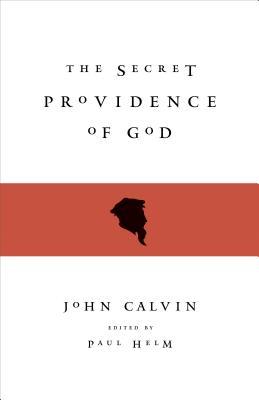- Bible
- Read the Bible
- Bible Versions
- Verse of the Day
- Reading Plans
- Verses by Topic
- Books of the Bible
- Bible Images
- Study
- Commentaries
- Concordances
- Dictionaries
- Encyclopedias
- Sermons
- Bible Atlas & Maps
- BP Wiki
- Devotionals
- Today's Devotionals
- Light of the World
- All Devotionals
- Inspirational Quotes
- More
- Picture Quotes
- Videos
- Inspirational
- Bible Study
- What The Bible Says
- Bible Q&As
- Daily Bread
- Bible by Genre
- Bible Stories
- Random Bible Verse
- Community
- Store
Secret Providence of God
by John Calvin
In 1558 John Calvin held a prominent position of leadership in the Reform movement. He had written prolifically and his works had been widely circulated-and critiqued. It was at this time that he penned an answer to a critique of his position on divine providence, as articulated in the 1546 edition of the Institutes. His polemical defense of his beliefs, The Secret Providence of GodThe Secret Providence of God, reflects the boisterous, argumentative tone of the Reformation era and is Calvin's fullest treatment on this most important doctrine. Unfortunately, in recent decades this work has been largely forgotten.
With this new English translation of Calvin's work, editor Paul Helm reintroduces The Secret Providence of GodThe Secret Providence of God to students, pastors, and lay readers of Reformed theology. Translator Keith Goad has modernized the English while preserving a Latinized translation style as far as possible. Helm has provided a full introduction, discussing the work's background, content, style, and relation to Calvin's other writings on providence.
With this new English translation of Calvin's work, editor Paul Helm reintroduces The Secret Providence of GodThe Secret Providence of God to students, pastors, and lay readers of Reformed theology. Translator Keith Goad has modernized the English while preserving a Latinized translation style as far as possible. Helm has provided a full introduction, discussing the work's background, content, style, and relation to Calvin's other writings on providence.
Paperback, 130 pages
Published January 31st 2010 by Crossway Books (first published December 22nd 2009)
© 2025 Bibleportal.com All rights reserved.

John Calvin (1509 - 1584)
Was an influential French theologian and pastor during the Protestant Reformation. He was a principal figure in the development of the system of Christian theology later called Calvinism. Originally trained as a humanist lawyer, he broke from the Roman Catholic Church around 1530. After religious tensions provoked a violent uprising against Protestants in France, Calvin fled to Basel, Switzerland, where he published the first edition of his seminal work The Institutes of the Christian Religion in 1536.Calvin's writing and preachings provided the seeds for the branch of theology that bears his name. The Reformed, Congregational, and Presbyterian churches, which look to Calvin as the chief expositor of their beliefs, have spread throughout the world.
John Calvin was an influential French theologian and pastor during the Protestant Reformation. He was a principal figure in the development of the system of Christian theology later called Calvinism. Originally trained as a humanist lawyer, he broke from the Roman Catholic Church around 1530. After religious tensions provoked a violent uprising against Protestants in France, Calvin fled to Basel, Switzerland, where in 1536 he published the first edition of his seminal work Institutes of the Christian Religion.
Calvin's writing and preaching provided the seeds for the branch of theology that bears his name. The Presbyterian and other Reformed churches, which look to Calvin as a chief expositor of their beliefs, have spread throughout the world. Calvin's thought exerted considerable influence over major religious figures and entire religious movements, such as Puritanism, and some have argued that his ideas have contributed to the rise of capitalism, individualism, and representative democracy in the West.
Founder of Calvinism. John Calvin, a French scholar who became a leading preacher and dominant force in the Reformation of the 16th Century, studied at the University of Paris and at the University of Orleans. He became dissatisfied with the teachings of the Roman Catholic Church and allied himself with the cause of the Protestant Reformation in 1532.
When the king of France decided to settle the religious question in his country in favor of the Catholics, Calvin fled to Geneva, Switzerland, where his writings and lectures made Geneva the Rome of Protestantism. His institutes of the Christian religion became the basis for the Presbyterian way of thought and church life. Calvinism is the main doctrine of the Presbyterian and Reformed Churches.
... Show more